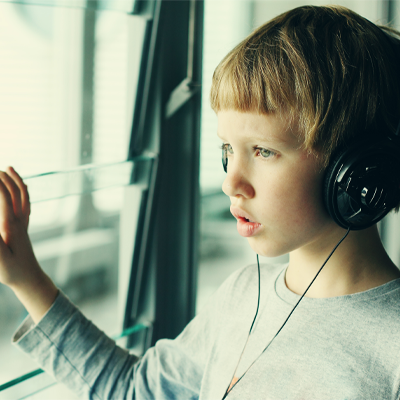ADHD stands for attention deficit hyperactivity disorder. You may also hear it referred to as ADD (attention deficit disorder), which is what it used to be known as before the condition included hyperactivity.
It is typical for children to be highly active at a young age. For some children however, there could be an underlying difficulty, such as ADHD, which needs to be supported.
A child with ADHD may struggle with:
- inattention - finding it hard to concentrate for long periods of time and feeling easily distracted.
- overactivity - having lots of energy, fidgeting often, struggling to keep still and talking lots.
- impulsivity - acting without thinking, interrupting others, struggling to follow instructions.
These types of behaviour can have an impact on everyday life at school and with friendships, sleep, family life and hobbies.
If you are concerned that you, your child or young person you care for has ADHD, there are self-help resources and support services further down this page. You can also visit your GP who will refer you to a specialist for an assessment to diagnose ADHD. The specialist team who diagnose ADHD are the community paeditricians there website is here- https://cchp.nhs.uk/cchp/clinicians/adhd-referral.
CAMHS do not take referrals for ADHD on its own, either to diagnose it or to provide support for it. However, we do support children and young people with ADHD who have other mental health difficulties.
There are different ways to help children and young people through the difficulties of ADHD. These can include:
- learning strategies to cope
- getting extra support from school
- medication when necessary
If you have ADHD, you will receive support from other agencies like the community pediatric service, your family doctor (GP), or school health nurse.
In CAMHS, we do not take referrals for ADHD on its own, either to diagnose it or to provide support for it. However, we do support children and young people with ADHD who also have other mental health difficulties. There are lots of services that support children and young people with ADHD. Take a look at our support sections below, or visit our conditions overview page for further advice.
If you think you, your child or young person you care for might have ADHD but you’re unsure what the symptoms and signs are, the following self-help resources are a good place to start:
- NHS website
- Young Minds: ADHD and Mental Health
- Creative Youth Network: offers advice and support, no matter what your situation or background.
- Off The Record: sign up to groups such as Resilience Lab or Mind Aid to learn more about anxiety and develop some coping strategies.
- Kooth: join an online mental wellbeing community and talk to a trained counsellor through their chat function. Visit the online forum for peer support and to hear from others experiencing similar difficulties.
- Royal College of Psychiatrists.
- No Panic.
Page last updated: 20 April 2023



